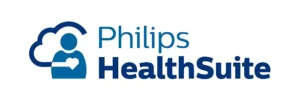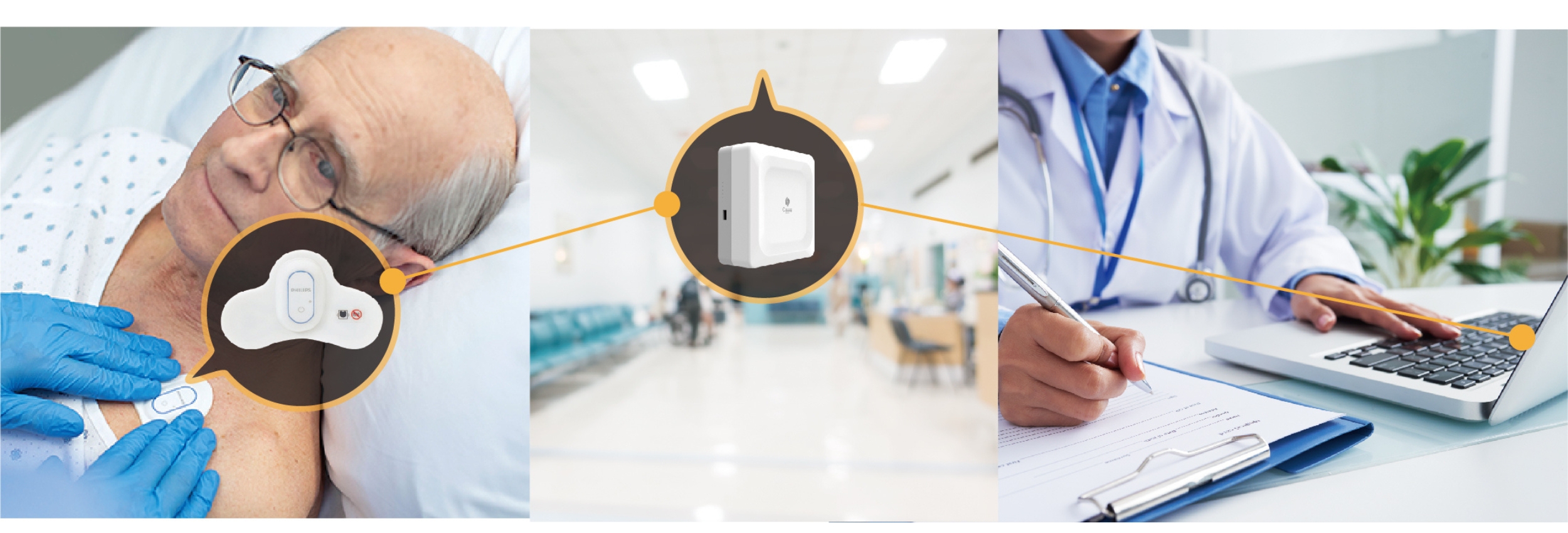
Healthcare Case Study

Reducing the Risk of COVID-19 Transmission Using Philips’ Biosensor BX100 and Cassia’s Bluetooth Gateways
BACKGROUND
The Novel Coronavirus (COVID-19) pandemic has dramatically changed the way today’s healthcare organizations are treating patients in hospitals and clinics worldwide. To adapt to these ongoing challenges, many healthcare facilities are deploying patient monitoring solutions and adopting innovative technologies to provide medical staff with the tools they need to ensure patients diagnosed with or suspected of COVID-19 are receiving quality care while minimizing the risk of cross-infection between patients and medical staff.
CHALLENGES
To date, there is no vaccine or treatment to protect against the Coronavirus. As the number of COVID-19 cases continues to increase around the world, medical professionals are working tirelessly to save lives while dealing with limited medical resources needed to effectively treat the influx of infected patients. Furthermore, confirmed COVID-19 patients pose the risk of cross-infection to other patients as well as healthcare workers. In situations where widespread infections are present, traditional methods of patient surveillance not only increases the risk of spreading the virus but doesn’t provide the continuous vital sign monitoring needed to detect early signs of patient deterioration. Also, the overwhelming number of infected patients puts a strain on medical resources such as ventilators, personal protective equipment (PPE) as well as the medical staff.
SOLUTION
Philips, a global leader in healthcare technology, developed a wireless wearable sensor to help manage confirmed and suspected COVID-19 patients in hospitals. The medical grade Philips Biosensor BX100 is an easy to use wireless sensor that adheres to a patient’s chest to
collect, store and transmit respiratory rate, heart rate and other parameters such as activity and posture. The data is sent from the patient to a management dashboard where medical staff can analyze patient vitals. Recently, a major Dutch hospital is using Philips’ Biosensor BX100 for continuous vital sign monitoring of patients confirmed with COVID-19. The hospital designated COVID-19 wards to help limit the spread of the virus and minimize the risk of cross-infection between patients and medical staff.
Philips has partnered with Cassia Networks to use the E1000 Bluetooth gateways and IoT Access Controller (AC) to enable a complete patient monitoring solution for the hospital. Cassia’s gateways are being used to wirelessly transmit patient vitals from the BX100 sensor to a health management dashboard for continuous patient monitoring and analysis. This solution reduces the risk of cross-infection between patients and medical staff, improves the quality care of patients and helps preserve critical PPE.
Long Range, Multiple Device Connectivity
Philips is using Cassia’s E1000 Bluetooth gateway to provide seamless long-range, multiple device connectivity needed to cover multiple wards in the hospital. As patients move freely inside the hospital, a single E1000 gateway is designed to connect up to sixteen sensors and provide the long-range coverage needed to monitor these patients in various wards of the hospital. Cassia’s Bluetooth gateway can capture the data from the BX100 sensors allowing medical staff to remotely monitor a patient’s condition and receive alerts in the event their condition begins to deteriorate. For other Cassia applications, the E1000 Bluetooth gateway has demonstrated the ability to enable as many as 40 simultaneous Bluetooth Low Energy (BLE) paired and connected devices all while providing a range of up to 1000 feet in open space.
Scalable, Flexible and Secure
The powerful capabilities of Cassia’s E1000 Bluetooth gateway allow Philips to deliver a scalable patient monitoring solution for the hospital. Cassia’s gateways support advanced encryption security features to safeguard sensitive patient data. In addition to Cassia’s gateways, Philips is using Cassia’s IoT AC, a powerful network management solution for easy setup and management of multiple gateways. This provides the flexibility needed for medical staff to remotely monitor multiple patients in various wards without having to perform physical routine checks. To facilitate ease of deployment in the hospital, a unique deployment feature is being used to provide valuable insight into areas in the hospital where BLE coverage exists and also indicates specific areas that may need additional coverage and/or require further improvements.
RESULTS
By harnessing the power of Cassia’s E1000 Bluetooth gateways and IoT AC, Philips can offer their wearable vital sign monitoring solution in hospitals and provide a cost- effective approach to patient care while minimizing the risk of cross-infection.
Reducing the Risk of Cross-Infection and Managing Patient Deterioration
Timing is critical in monitoring and treating patients infected with COVID-19. The combination of Cassia’s E1000 Bluetooth gateways, IoT AC and Philips’ Biosensor BX100 now provides medical staff in the hospital the ability to monitor these patients continuously and accurately for early detection of patient deterioration. Furthermore, by reducing the need for physical routine checks, the risk of cross-infection between patients and medical staff is minimized. During a time when critical resources and medical staff are limited, this patient monitoring solution allows care teams to remain responsive to patient needs, improve patient safety and preserve critical PPE.
Improving the Quality of Patient Care While Reducing Costs
By combining wireless technology, data and analytics into a fully integrated health monitoring solution, the hospital’s medical staff are better equipped to accurately monitor high-acuity patients in COVID-19 wards. This solution allows medical staff to detect early signs of patient deterioration (e.g. respiratory rate) to provide early
intervention. As a result, care teams can effectively treat high risk patients and provide the quality and specialized care they need. Second, because fewer Cassia Bluetooth gateways are needed to cover multiple wards, Philips can now offer a lower-cost wireless technology solution allowing the hospital to benefit from significantly reduced equipment and maintenance costs.
Together with Philips, Cassia Networks is committed to delivering a robust, modern and scalable vital sign monitoring solution for healthcare organizations worldwide.
With the help of Cassia’s long-range gateways and Bluetooth technology, we were able to rapidly deploy our patient monitoring solution for the hospital during these challenging times. Also, the ability to collect real-time patient data via a single Cassia gateway from multiple BX100 sensors provides tremendous value for the care teams.
Cassia is proud to be working with Philips to help fight the spread of COVID-19 as well as helping save lives. With the combination of Philips’ Biosensor BX100, Cassia’s Bluetooth gateways and IoT Access Controller, we can provide hospitals, clinics and medical staff with an effective and continuous patient monitoring solution to address current and future healthcare challenges.
ABOUT CASSIA
Cassia Networks is the leading provider for enterprise Bluetooth IoT products and solutions. Our patented technology provides the most reliable and easy to manage long-range, multiple device connectivity, edge processing and locationing for Bluetooth IoT networks.
Our mission is to solve the IoT connectivity, locationing and management challenges faced by today’s enterprises and make IoT easy.
To learn more about Cassia’s products and solutions, please visit www.cassianetworks.com or contact us at sales@cassianetworks.com / support@cassianetworks.com.
For more information about Philips Healthcare, please visit www.usa.philips.com/healthcare.

